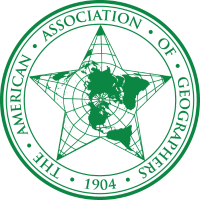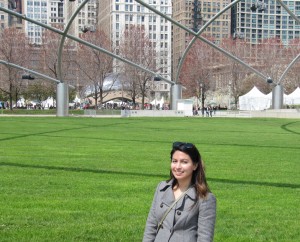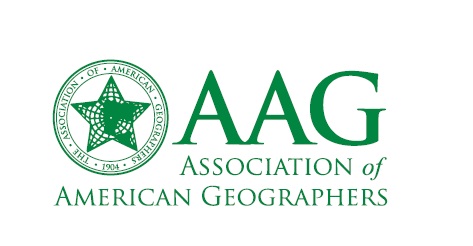By Suthee Sangiambut

The Annual Meeting of the American Association of Geographers will be in Boston, MA from 5 April to 9 April 2017
Geothink once again has a strong presence at the American Association of Geographers (AAG) Annual Meeting, this time to be held in Boston, Massachusetts, USA. Make sure not to miss two very special sessions: The Dark Side of Open Data Part One and Part Two, organized by our very own Geothink co-applicants.
See below for a compiled list of Geothink co-applicant and student presentations, discussions, and panel appearances. You can also search the programme here.
Remember to tweet at us (@geothinkca) and use #geothink and #AAG2017 conference tags.
Wednesday 5 April 08:00 – 09:40
1117 Information geographies: Social dimensions of Web 2.0 cartographies
Location: Room 206, Hynes, Second Level
08:00 Laura Garcia is presenting Are individuals responsible for their own privacy in the geoweb
Wednesday 5 April 08:00 – 09:40
1123 Emerging Field Methods for Environmental Perceptions and Behavior
Location: Room 303, Hynes, Third Level
08:00 Edward Millar is chairing the session and presenting on The Cottage Effect: Investigating Spatial Bias in Citizen Science Using a Comparative Analysis
Wednesday 5 April 12:40 – 14:20
1457 The Dark Side of Open Data – Part One
Location: Gardner A, Sheraton, Third Floor
Pamela Robinson, Peter Johnson, and Teresa Scassa are organizers. Peter Johnson is chairing the session.
12:40 Suthee Sangiambut and Laura Garcia are Interrogating the open in open data from interdisciplinary perspectives
13:00 Renee Sieber is unveiling Façades of Openness in Government
13:20 Elizabeth Judge and Tenille Brown are presenting “Tort, Open Data, and the Geoweb: A Framework for Assessing Negligence”
13:40 March Burchfield is detailing When a mandate for transparency and open data culture is not quite ready for prime time
14:00 Jon Corbett and Shelley Cook explain How open is your redlining policy? Exploring geospatial data sharing tools to improve homeless service provision in British Columbia, Canada.
Wednesday 5 April 14:40 – 16:20
1557 The Dark Side of Open Data – Part Two
Location: Gardner A, Sheraton, Third Floor
Pamela Robinson, Peter Johnson, and Teresa Scassa are organizers. Renee Sieber is chairing the session.
15:00 Peter Johnson presents on Municipal Open Data: A Slow Death?
15:20 Teresa Scassa presents Government use of georeferenced social media data and analytics: challenges for transparent and open government
15:40 Keira Webster and Pamela Robinson present Fostering the ‘Time is Now’ Mentality: the Role of Open Data in Urban Climate Resilience
16:00 Pamela Robinson presents Unlocking the Civic Potential of Open Data: Whose job is it?
Wednesday 5 April 16:40 – 18:20
1633 Spatial Decision Support Across Disciplines: Scholarship, Pedagogy and Practice
Location: Room 313, Hynes, Third Level
Rob Feick is a panellist
Thursday 6 April 15:20 – 17:00
2591 Urban-economic perspectives on technology
Location: Nantucket, Marriott, Fourth Floor
Renee Sieber is a discussant
Friday 7 April 13:20 – 15:00
3441 Big data and data privacy
Location: Liberty C, Sheraton, Second Floor
14:20 Rob Feick will speak on The spatial disconnect problem
Saturday 8 April 13:20 – 15:00
4469 Symposium on Human Dynamics in Smart and Connected Communities: Whither ‘human dynamics’ within geography?
Location: Regis, Marriott, Third Floor
Renee Sieber is a discussant
Saturday 8 April 15:20 – 17:00
4586 Trees in the City 3: Social and Ecological Influences in the Urban Forest
Location: Salon I, Marriott, Fourth Floor
16:20 James Steenberg is presenting Counter-intuitive Relationships Between Housing Renovation, Socioeconomic Status, and Urban Forest Ecosystems
Saturday 8 April 17:20 – 19:00
4638 Digital \\ Human \\ Labour 5: Panel
Location: Independence East, Sheraton, Second Floor
Renee Sieber is a discussant
Sunday 9 April 16:00 – 17:40
5583 Learning and Applying Tools in Geography: Interdisciplinary Applications of GIS
Location: Exeter, Marriott, Third Floor
Renee Sieber and Jon Corbett are panellists





